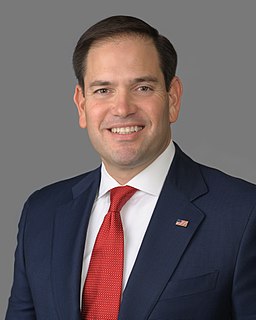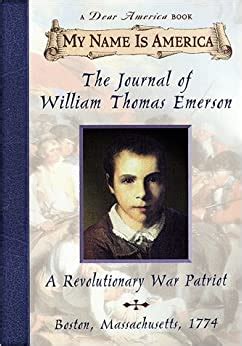A Quote by Walter E. Williams
The War between the States... produced the foundation for the kind of government we have today: consolidated and absolute, based on the unrestrained will of the majority, with force, threats, and intimidation being the order of the day. Today's federal government is considerably at odds with that envisioned by the framers of the Constitution. ... [The War] also laid to rest the great principle enunciated in the Declaration of Independence that 'Governments are instituted among Men, deriving their just powers from the consent of the governed'.
Quote Topics
Absolute
Also
Among
Based
Being
Between
Consent
Consent Of The Governed
Constitution
Day
Declaration
Declaration Of Independence
Envisioned
Federal
Federal Government
Force
Foundation
Framers
Governed
Government
Governments
Great
Independence
Intimidation
Just
Kind
Laid
Majority
Men
Odds
Order
Powers
Principle
Produced
Rest
States
Threats
Today
War
Will
Related Quotes
Governments are instituted among men, deriving their just powers from the consent of the governed, that whenever any form of government becomes destructive of these ends, it is the right of the people to alter or abolish it, and to institute new government, laying its foundation on such principles, and organizing its powers in such form, as to them shall seem most likely to effect their safety and happiness.
Stripped of all its covering, the naked question is, whether ours is a federal or consolidated government; a constitutional or absolute one; a government resting solidly on the basis of the sovereignty of the States, or on the unrestrained will of a majority; a form of government, as in all other unlimited ones, in which injustice, violence, and force must ultimately prevail.
I do verily believe that if the principle were to prevail of a common law being in force in the United States (which principle possesses the general government at once of all the powers of the state governments, and reduces us to a single consolidated government), it would become the most corrupt government on the earth.
Under the constitution, there was never meant to be a federal police force. Even an FBI limited only to investigations was not accepted until this century. Yet today, fueled by the federal government's misdirected war on drugs, radical environmentalism, and the aggressive behavior of the nanny state, we have witnessed the massive buildup of a virtual army of armed regulators prowling the States where they have no legal authority. The sacrifice of individual responsibility and the concept of local government by the majority of American citizens has permitted the army of bureaucrats to thrive.
The germ of dissolution of our federal government is in the constitution of the federal judiciary; an irresponsible body, (for impeachment is scarcely a scare-crow) working like gravity by night and by day, gaining a little today and a little tomorrow, and advancing its noiseless step like a thief, over the field of jurisdiction, until all shall be usurped from the States, and the government of all be consolidated into one.
The powers delegated by the proposed Constitution to the federal government are few and defined. Those which are to remain in the State governments are numerous and indefinite. The former will be exercised principally on external objects, as war, peace, negotiation and foreign commerce. ... The powers reserved to the several States will extend to all the objects which in the ordinary course of affairs, concern the lives and liberties, and properties of the people, and the internal order, improvement and prosperity of the State.
I believe that the power to declare war is most important in limiting the powers of the national government in regard to the rights of its citizens, but that it does not require Congress to give its approval before the president uses force abroad. I do not believe that the framers of the Constitution understood the power to declare to mean "authorize" or "commence" war. That does not mean that the separation of powers or checks and balances will not work.
No power but Congress can declare war; but what is the value of this constitutional provision, if the President of his own authority may make such military movements as must bring on war? ... [T]hese remarks originate purely in a desire to maintain the powers of government as they are established by the Constitution between the different departments, and hope that, whether we have conquests or no conquests, war or no war, peace or no peace, we shall yet preserve, in its integrity and strength, the Constitution of the United States.
The proposed constitution, therefore, even when tested by the rules laid down by its antagonists, is, in strictness, neither a national nor a federal constitution; but a composition of both. In its foundation it is federal, not national; in the sources from which the ordinary powers of the government are drawn, it is partly federal, and partly national; in the operation of these powers, it is national, not federal; in the extent of them again, it is federal, not national; and finally, in the authoritative mode of introducing amendments, it is neither wholly federal, nor wholly national.
In explaining the Constitution, James Madison, the acknowledged father of the Constitution, wrote in Federalist Paper 45: 'The powers delegated by the proposed Constitution to the Federal government are few and defined. Those which are to remain in the State governments are numerous and indefinite. The former will be exercised principally on external objects, as war, peach, negotiation, and foreign commerce.' Has the Constitution been amended to permit Congress to tax, spend and regulate as it pleases or have Americans said, 'To hell with the Constitution'?
Puerto Rican independence movement wasn't just rooted in some sort of personal intransigence or some passionate Latino temperament. It was rooted in economic and political reality at the time. It also made sense since the founding principles of the United States are supposedly based on government by the consent of the governed, and the sense that all men are created equal.
































